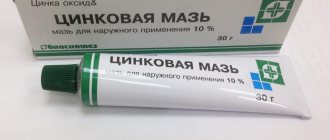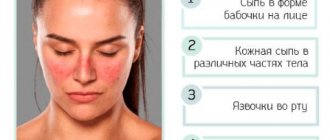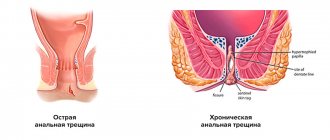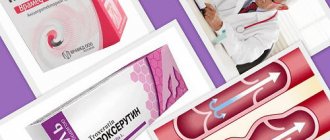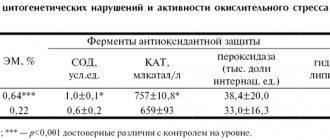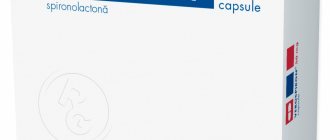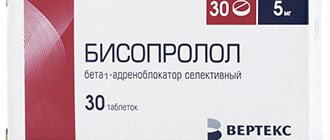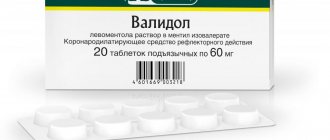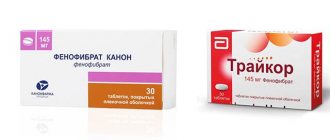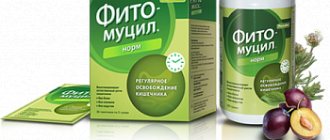Heparin ointment is a direct anticoagulant. It is intended for external use. The drug is a white or slightly yellowish homogeneous mass. Heparin ointment is made on the basis of petroleum jelly, which ensures ease of application. The stability of the composition is maintained by glycerin.
The combined drug contains three main components:
- Heparin sodium. This substance is an anticoagulant. It promotes the resorption of hematomas, relieves swelling and reduces inflammatory processes.
- Benzocaine, which provides the drug with analgesic properties.
- Benzyl nicotinate. This substance accelerates the penetration of heparin through the skin.
The long shelf life of the drug and the preservation of medicinal properties are ensured by the presence of a preservative in the composition - nipagin. The anti-inflammatory effect of the ointment is enhanced by another additional component - peach oil.
The ointment is packaged in compact aluminum tubes of 10, 20, 25, 30 or 50 g. This allows you to select the amount of product according to the situation. The tube is packaged in a cardboard box along with instructions for use of the medicinal product.
Composition and active substances
| Substances that affect human blood clotting are often used in medicine to prevent the formation of blood clots and/or resorption of already formed blood clots during surgery, in patients after myocardial infarction and in the treatment of other diseases of the cardiovascular system. |
Anticoagulants, the so-called substances that affect the coagulation of human blood, suppress the formation of fibrin, the main protein in blood clots, and also inhibit the growth of existing clots.
All anticoagulants are divided into a number of groups, according to the method and speed of action:
- direct anticoagulants (substances that act directly on the formation of thrombin),
- indirect anticoagulants (substances that reduce the rate of formation of elements responsible for the process of blood clotting).
Heparin is a direct anticoagulant with antithrombotic and anti-inflammatory effects. It was first isolated from the liver, hence the name heparin - from the ancient Greek ἧπαρ - liver. Heparin has a direct effect on blood plasma, involving compounds that enhance the anticoagulant effect.
It is used in the prevention and treatment of thrombosis, thrombophlebitis, thromboembolism and thromboembolic complications.
- Thrombosis is a pathological condition in which blood clots form inside blood vessels, blocking the free flow of blood.
- Thrombophlebitis is the formation of a large blood clot that blocks the lumen of a vein.
- Thromboembolism is a blockage of a vessel by a large blood clot that breaks away from the site of its formation and enters the bloodstream.
Heparin ointment is a combined-spectrum drug intended for external use. The ointment contains:
- heparin,
- benzocaine,
- benzyl nicotinate.
We talked about heparin above. Regarding benzocaine , it is a local anesthetic that reduces pain. Benzyl nicotinate is a substance that dilates superficial blood vessels, which facilitates the rapid absorption of heparin into the blood. In turn, heparin, having separated from the additional components of the ointment, has an antithrombotic effect and reduces the inflammatory process.
Indications and contraindications for the use of Heparin ointment
The main indications for the use of Heparin ointment are:
- Thrombophlebitis is the formation of a large blood clot that blocks the lumen of a vein.
- Varicose veins and its complications are an increase in the diameter of the lumen of blood vessels, thinning of the venous wall and the formation of “nodes” - aneurysm-like local expansions.
- Hemorrhoidal thrombosis is varicose dilatation of hemorrhoidal veins with subsequent blockage.
- Extensive hematomas, including muscle and tendon hematomas; traumatic joint disorders, including sprains and dislocations.
- Swelling, severe injuries.
- Inflammatory processes in the veins after injections.
The dosage of the drug is selected individually, based on the general health of the patient.
Contraindications to the use of heparin ointment are:
- Ulcerative and necrotic processes in the area of thrombophlebitis.
- Blood coagulation pathologies, increased bleeding.
- A decrease in the level of platelets in the patient’s blood.
- Hypersensitivity to the active substance - heparin.
- Application of ointment to festering areas and open wounds is contraindicated.
It is worth remembering that Heparin ointment can cause side effects, such as an allergic reaction and hyperthermia of the skin. In order to check yourself for an allergy to heparin, a day before using the ointment, you need to apply a small amount of the drug to a healthy area of the skin; if after a while no adverse reaction appears, the ointment can be used.
In case of an overdose of heparin, bleeding may occur, in which case it is recommended to immediately seek medical help.
Pregnancy and lactation are not contraindications for the use of the ointment, however, its prescription, dosage and dynamics of use should be under the supervision of a physician.
Method of use and dosage of Heparin ointment
Heparin ointment is applied in a thin layer to the affected area of the skin and rubbed in with circular, gentle movements, repeating the procedure two to three times a day. Typically, the course of treatment with heparin lasts from three to seven days, sometimes, as prescribed by a doctor, longer.
For hemorrhoidal thrombosis, the drug is applied to a pad or gauze flap and applied to the external nodes; if hemorrhoidal disorders are deep, the ointment is applied to a tampon and inserted into the anus. In this case, Heparin ointment is indicated for use for three to fourteen days.
For varicose veins, rubbing the ointment is contraindicated; the ointment is applied carefully in a thin layer, trying not to knead the affected areas.
The specificity of using the ointment for bruises and injuries is that it is not applied at the time the injury occurs, but only the next day, otherwise it may provoke bleeding from the vessels in the area of the injury.
Particular attention should be paid to the fact that Heparin ointment is contraindicated for application to open wounds, places with damage to the integrity of the skin, as well as to places affected by purulent processes.
Regarding the dosage of the drug, it is approximately 0.5 - 1 g per area with a diameter of 3-5 cm of skin.
Indications for use
Since heparin ointment is available without a prescription, you need to know what it is used for. Common pathologies for which the drug is effective are the following:
- Chronic hemorrhoids.
- Inflammation of hemorrhoids after childbirth.
- Lymphatic failure.
- Thrombophlebitis.
- Superficial mastitis.
In addition, the product allows you to quickly eliminate the consequences of injuries and bruises of muscle tissue, joints, tendons, etc. It can be used to prevent varicose veins. It is also effective in the early stages of the development of this pathology, as it relieves pain and heaviness in the legs, normalizes microcirculation and promotes the resorption of formed blood clots.
How to use heparin ointment
It is important to know heparin ointment, what it is intended for and how to use it for various pathologies. Only if you follow the rules of use will you be able to achieve the desired effect in the shortest possible time. The product is applied to the affected area in a thin layer until the inflammatory symptoms disappear completely. Approximately 0.5-1 g or 2-4 cm is needed for an area with a diameter of 3-5 cm. On average, it takes 3 to 7 days for a positive result. A longer course of treatment must be agreed with the doctor.
In the early stages of varicose veins development, with the appearance of spider veins and slight expansion, the medicine is applied to areas where there are altered vessels. Manipulations are carried out for two weeks 3 times a day.
Heparin ointment, the instructions emphasize this, is an effective remedy for treating bruises. Due to the anticoagulant properties of the main active ingredient, the drug accelerates the resorption of blood clots. Other active components in the ointment provide a vasodilator and local analgesic effect. To eliminate bruises that are the result of severe contusions, the product is applied to the damaged area and rubbed in with gentle massage movements. Manipulations are performed 2-3 times a day for 5-15 days. But according to reviews, subcutaneous hematomas can be eliminated in 2-4 days in this way.
Heparin ointment against hemorrhoids, instructions for use indicate this, is used as follows:
- A small amount of the product is applied to a cotton pad.
- It is applied to inflamed nodes.
- When internal cones form, the drug is administered using a special nozzle.
As a rule, these manipulations are carried out until the symptoms of hemorrhoids disappear. Usually 5-14 days are enough for this.
Heparin ointment for varicose veins
For varicose veins, the drug is effective in combating heaviness in the legs, bursting pain, itching of the skin and for relieving swelling of the legs.
The popularity of the drug for this diagnosis is due to minor and extremely rare side effects, the availability of the drug and its high competitiveness against the background of the latest generation of drugs. Moreover, all complex medications that are indicated for the treatment of varicose veins contain heparin as an active or as an excipient.
To achieve the necessary therapeutic effect and alleviate the patient's condition, Heparin ointment must be systematically applied for a sufficiently long time. For varicose veins, the minimum treatment period is ten to fifteen days. The ointment is indicated for application both to the area of primary inflammatory-sclerotic changes in the wall of blood vessels, and to places that are in close proximity to the varicose trophic ulcer. Heparin ointment is effective at all stages of the disease.
As mentioned above, the ointment is contraindicated for use on open wounds, as this can cause bleeding, so you should not apply the ointment to the trophic ulcer itself. In cases with varicose veins, the application of Heparin ointment should be especially careful so as not to provoke complications. According to the doctor's instructions, the drug is applied two to three times a day. Despite the fact that heparin absorption through intact skin practically does not occur, the parallel use of indirect anticoagulants orally, heparin injections and blood-thinning medications should be carried out exclusively as prescribed by the treating doctor and under his constant strict supervision.
Do not be afraid of slight tingling and burning at the site of application of the ointment; this is a normal reaction of the body to the drug. And over time, after several days of using Heparin ointment, this effect will disappear. The ointment is contraindicated in patients with varicose veins or in cases of allergies to local anesthetics. As mentioned above, the drug contains benzocaine, which can cause individual intolerance reactions.
I bought an expensive ointment - now everything will definitely pass
This is what many people think who have fallen victim to an advertisement where varicose veins miraculously disappear after a girl applies cream to her leg. To doubt the veracity of such a video, you need to know what “varicose veins” are.
Varicose veins are dilation of the veins of the lower extremities, which can only be radically cured by surgery. Ointments and tablets help, but not always as advertised. The benefits of drugs in the treatment of varicose veins depend on the stage of the disease.
In the first stages of the disease , when the patient complains of heaviness in the legs, pain, itching, and when spider veins appear, drugs against varicose veins will help relieve unpleasant symptoms and slow down the development of the disease.
At the stage of the appearance of varicose veins, ointments and tablets for varicose veins are ineffective, since they cannot in any way affect the improperly functioning veins. Such veins do not carry blood for purification, but return contaminated blood to the foot. Surgery will help get rid of them, and medications will speed up the healing process.
When edema appears , treatment for varicose veins becomes complex and includes medications, compression garments and surgery. Surgery is needed to remove dysfunctional veins, and underwear and medications contribute to recovery.
At stages with trophic and ulcerative skin changes, independent treatment is contraindicated. Ointments, gels and tablets will not help as long as the cause of the disease remains - that is, the affected veins. Treatment in the final stages of varicose veins is prescribed by the doctor individually for each patient. Self-administration of medications can worsen the condition.
Ointments and tablets for varicose veins are prescribed in combination with other treatment methods to improve valve function, blood circulation, and reduce the risk of thrombosis. Ointments and gels are effective in reducing discomfort and relieving heaviness in the legs, thanks to the cooling components in the composition.
Let's compare prices
The average price of drugs for varicose veins with heparin, escin and essential phospholipids in the composition is 1,000 rubles. With grape leaf extract - from 1,300 rubles. For a drug with an extract from the small intestinal mucosa you will pay more than 3,000 rubles. The price of the cheapest products is on average about 300 rubles per package. A tube of gel for varicose veins or a package of tablets is enough for about a month of use. Spending 1,000 rubles a month on drugs for varicose veins will cost 12,000 rubles in a year. However, the disease will not disappear anywhere. On the contrary, it will continue to develop at a slightly slower pace. In two years, varicose veins will enter a more complex stage and will require greater costs.
To avoid complications and not waste money, consult a phlebologist. The doctor will prescribe treatment and select an effective set of medications, based not on sensations, but on the knowledge and results of your examination.
Heparin ointment for hemorrhoids
Hemorrhoids are a serious disease, acute forms of which can lead to the need for surgical intervention and significantly delay the recovery process. Heparin ointment has proven itself to be an effective remedy in the treatment of this disease. When treating hemorrhoids with ointment, you can relieve the symptoms of tension, pain, and a feeling of constant discomfort. Its use, as well as the use of other drugs with heparin, is indicated to provide a local thrombolytic effect, as well as to reduce inflammation.
As mentioned at the beginning of the article, the main effect of heparin is to reduce the production of fibrin in human blood, which is the basis for the formation of blood clots. By acting on fibrin directly in the bloodstream, heparin effectively combats the high risk of blood clots, which reduces the likelihood of vein blockage and the subsequent occurrence of an inflammatory process. The benzonicotinate and benzocaine contained in the ointment promote rapid absorption of the active substance and relieve pain. The ointment is indicated not only for hemorrhoids, but also when it is complicated by thrombosis of hemorrhoidal veins.
When prescribing an ointment, you should pay attention to contraindications and side effects. So the drug should not be used if the patient has hypersensitivity to the components of the drug, with necrosis and bleeding disorders. For pregnant women and during lactation, Heparin ointment can be used only as prescribed by a doctor. During treatment, you should be attentive to possible side effects, as allergic skin reactions, rashes and swelling may occur. If they occur, you should stop treatment and consult a doctor to find a possible alternative.
There are two ways to use ointment for hemorrhoids. If hemorrhoids are localized externally, then the ointment is applied to a gauze flap or pad and applied to the site of the problem, after which it is fixed. If the disease is hidden, then a tampon is soaked in the ointment and inserted into the anus. Treatment of hemorrhoids with Heparin ointment can take from three to fourteen days, depending on the complexity of the disease.
It is also worth remembering that the drug is not a panacea and if there is no improvement in the patient’s condition, it is necessary to consult a proctologist to prescribe an alternative treatment.
Myth No. 2: varicose veins can be cured with ointments and gels. This is wrong.
I still can’t understand how exactly varicose veins can be defeated with the help of ointments and gels. In one famous television advertisement, a girl applies ointment to her varicose veins and, lo and behold, they disappear before our eyes. Any patient would give anything in the world for such a miraculous ointment.
How can these ointments heal a damaged valve?
Rubbing the gels into the skin of the lower extremities is just a light massage of the legs, and has a calming effect on a person, and the menthol content also cools them. This is the psycho-emotional factor.
Another important point is the allergic component, which appears in some patients during the use of ointments and gels. Skin irritation - allergic dermatitis, is not so rare. This can even worsen the condition of the lower extremities. And using ointments in the presence of trophic changes is possible only after consulting a dermatologist.
Allergic dermatitis after using venotonic gel
The pharmacy may recommend you natural ointments based on horse chestnut, heparin-containing gels, or the very extravagant Sophia cream with leech extract, which has nothing to do with leeches or varicose veins. But patients, using these creams, ointments, gels, tell me during the consultation: “but it really helps me.” If it helps you, use these remedies. But I consider this self-hypnosis and a waste of money.
Heparin ointment during pregnancy
Heparin ointment during pregnancy and lactation is prescribed exclusively by a doctor for the following disorders:
- Varicose veins (a common disorder during pregnancy due to weight gain, swelling, and decreased physical activity).
- Thrombosis.
- Thrombophlebitis.
- Hemorrhoids (often occurs in the postpartum period due to the increased risk of constipation and strain during childbirth).
- Injuries.
- Inflammation of veins after injections.
Heparin ointment during pregnancy and lactation is strictly contraindicated in the following cases:
- hypersensitivity to ointment components;
- the presence of open wounds and/or necrosis;
- reducing blood clotting.
During pregnancy, the ointment is recommended to be used up to three times a day for no more than two weeks. The entire period of treatment should take place under the close supervision of the attending physician. If side effects occur, you should immediately seek professional medical help. Overdoses of ointment were practically not observed, however, throughout the course of treatment it is necessary to pay special attention to blood clotting. Among the main side effects of Heparin ointment during pregnancy are: allergic dermatitis, itching, urticaria, rashes. To prevent undesirable effects, a day before the start of treatment, it is necessary to conduct a home skin test for allergies. A small amount of the drug is applied to a healthy area of skin; if after a while no adverse reactions appear, the ointment can be used.
